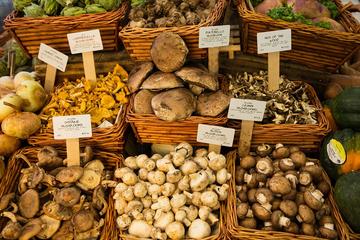
Wild fungi are important culturally, medicinally, and ecologically
New research, published today in Conservation Letters and in collaboration with Fundación Fungi, sets out four key steps to conserving wild fungi.
The research proposes ways to move away from the “flora and fauna” view of nature, towards a more comprehensive one that includes fungi. These will help place wild fungi right at the heart of sustainable development goals.
Wild fungi are critical to the health of ecosystems. They maintain soil fertility, which is important in agriculture to support food security.
They also break down decaying matter and lock away carbon in the soil, keeping it out of the atmosphere.
The harvest, trade and consumption of wild fungi – like oyster mushrooms in Europe and matsutake in Japan and North America - support livelihoods and provide important culinary and medical components.
Despite their importance, fungi are often forgotten in sustainability policy.
“Although fungi are a key group of organisms that deliver crucial ecosystem services, their contribution is largely ignored”
Rodrigo Oyanedel Diaz
The research team reviewed the existing literature on wild fungi conservation. They found that there is huge potential for fungi, in many places in the world, to contribute to more equitable societies, health environments and rural economies.
“There was a lot less literature than we expected, reflecting that fungi are not only being neglected by policies and society at large, but by scientists too”
Rodrigo Oyanedel Diaz
To overcome this neglect, the researchers proposed four steps:
- Acknowledge the existence of fungi as an independent Kingdom
- Adapt and tailor policies to include fungi
- Start to comprehensively monitor the status and trends in fungi
- Promote responsible use of fungal species
The researchers think this work could influence international sustainability meetings and conventions, such as COP26 and the IUCN World Conversation Congress. These will shape conservation of biodiversity for the next several decades.
“Because we provide key steps to follow, there are several organizations, from NGOs to governments, that can see in our work a guide for moving towards really including fungi in policy and beyond.”
Rodrigo Oyanedel Diaz
To read more about this research, published in the Conservation Letters, please visit: https://conbio.onlinelibrary.wiley.com/doi/full/10.1111/conl.12882.